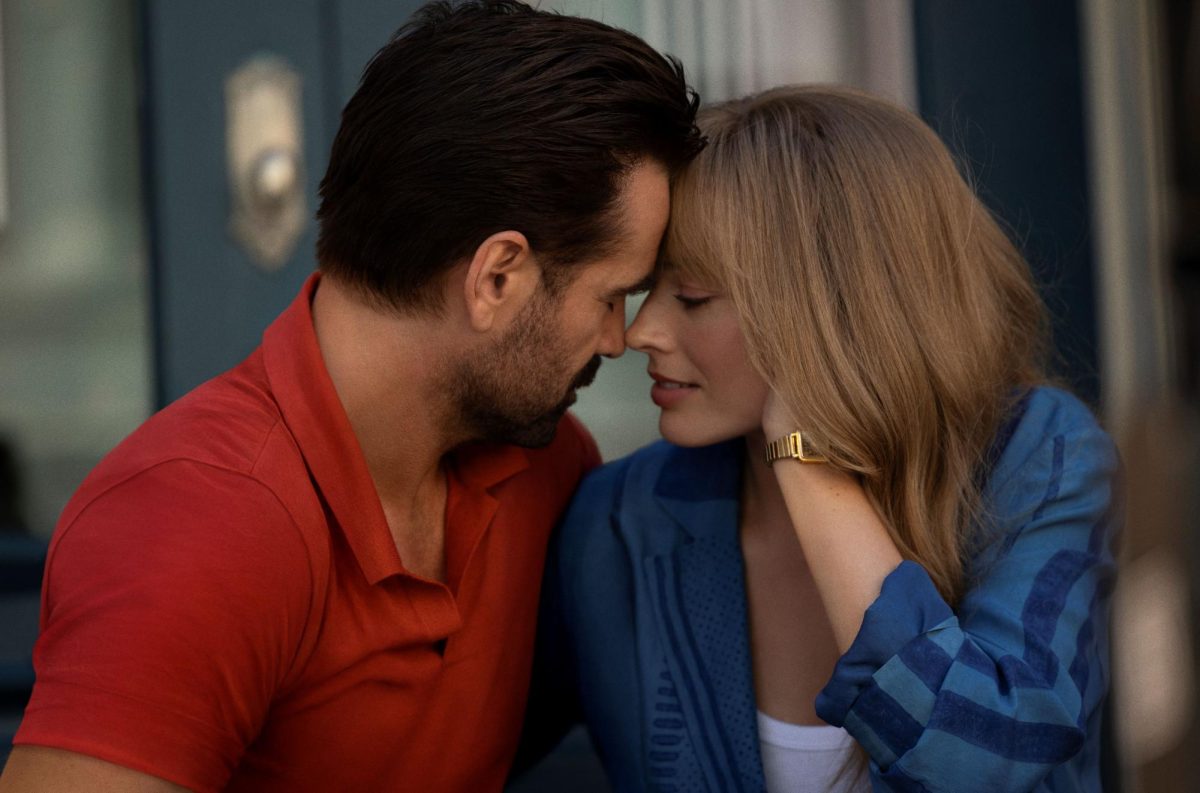It’s hard for a film to be sincere when not one, but two Burger King product placements interrupt its story. Unfortunately, that’s exactly what happens in director Kogonada’s “A Big Bold Beautiful Journey,” starring Academy Award nominees Margot Robbie and Colin Farrell. In an era where wholehearted romance stories in film are increasingly rare, Kogonada’s attempt at a grand, emotional tale of love and humanity feels like a surrealist Colleen Hoover movie.
The film follows Sarah (Robbie), a serial cheater too busy breaking hearts to mend her own, and David (Farrell), a pitiful but persistent romantic waiting for his one true love. After their paths cross at a mutual friend’s wedding, the pair embarks on a surreal and fateful journey. They travel through mysterious doors that allow them to step inside their memories, assisted by spiritual guides in the form of car GPS along the way. As intriguing as that sounds, the film ends up feeling more irritating than purposefully zany. It’s too random for its own good, while somehow also following the rule book too closely for any real shock or growth to occur.
Despite Sarah and David being strangers, every aspect of their relationship feels preplanned. From their cliched meet-cute at the wedding, the pair’s ending is obvious to anyone who’s watched a rom-com. Still, their budding connection falls flat due to one crucial aspect — they have nothing in common. Their conversations are awkward, filled with trivial talk about burgers and dancing. When David hits Sarah with a dramatic “I love you” speech in the film’s third act, it feels like the movie has skipped more than a few chapters, neglecting to take time and flesh out their relationship. Kogonada may play it off as fate, but anyone craving a story with depth will be disappointed.
“A Big Bold Beautiful Journey” not only touches on romantic love, but also familial connections. Yes, there is even a mom with cancer. Throughout Sarah and David’s existential journey, they confront why they’re so reluctant to love. Between Sarah’s guilt regarding her late mother’s illness and David’s self-esteem issues, Kogonada nearly succeeds in crafting a meaningful story that explores forgiveness and grief. Still, this promising arc fights for screen time with the romance, and there is simultaneously too much and not enough to do the characters justice.
“A Big Bold Beautiful Journey” admittedly prospers with its visual and sonic elements. You can clearly see Kogonada’s appreciation for director Wes Anderson’s works with the symmetrical shots and detailed sets that adorn the film. There is also a whimsical feel to the story, almost to the point where a holiday backdrop would’ve been more fitting — throw in some Christmas trees and themes about the indomitable holiday spirit and you’ve got a film that might just get away with its cliches.
As for music, award-winning Japanese composer Joe Hisaishi, who has worked heavily with Hayao Miyazaki and Studio Ghibli, beautifully fills the movie with a theatrical piano score, providing an extra emotional push where the story lacks. Admittedly, the film does go overboard with its added soundtrack. Icelandic jazz artist Laufey contributes four songs to the movie, and while they’re individually beautiful, the repetition makes the film feel like an extended music video. However, there are brief moments of greatness: One pivotal sequence with Mitski’s “Bug Like an Angel” works perfectly.
Even with some charismatic qualities, “A Big Bold Beautiful Journey” never feels big or bold, just chaotic and confined to generic conventions. At a time when finding true love seems nearly impossible, it feels disheartening to see two strangers brought together only by the power of sentient car radios and magical doors.
Contact Amelia Knust at [email protected].
























































































































































